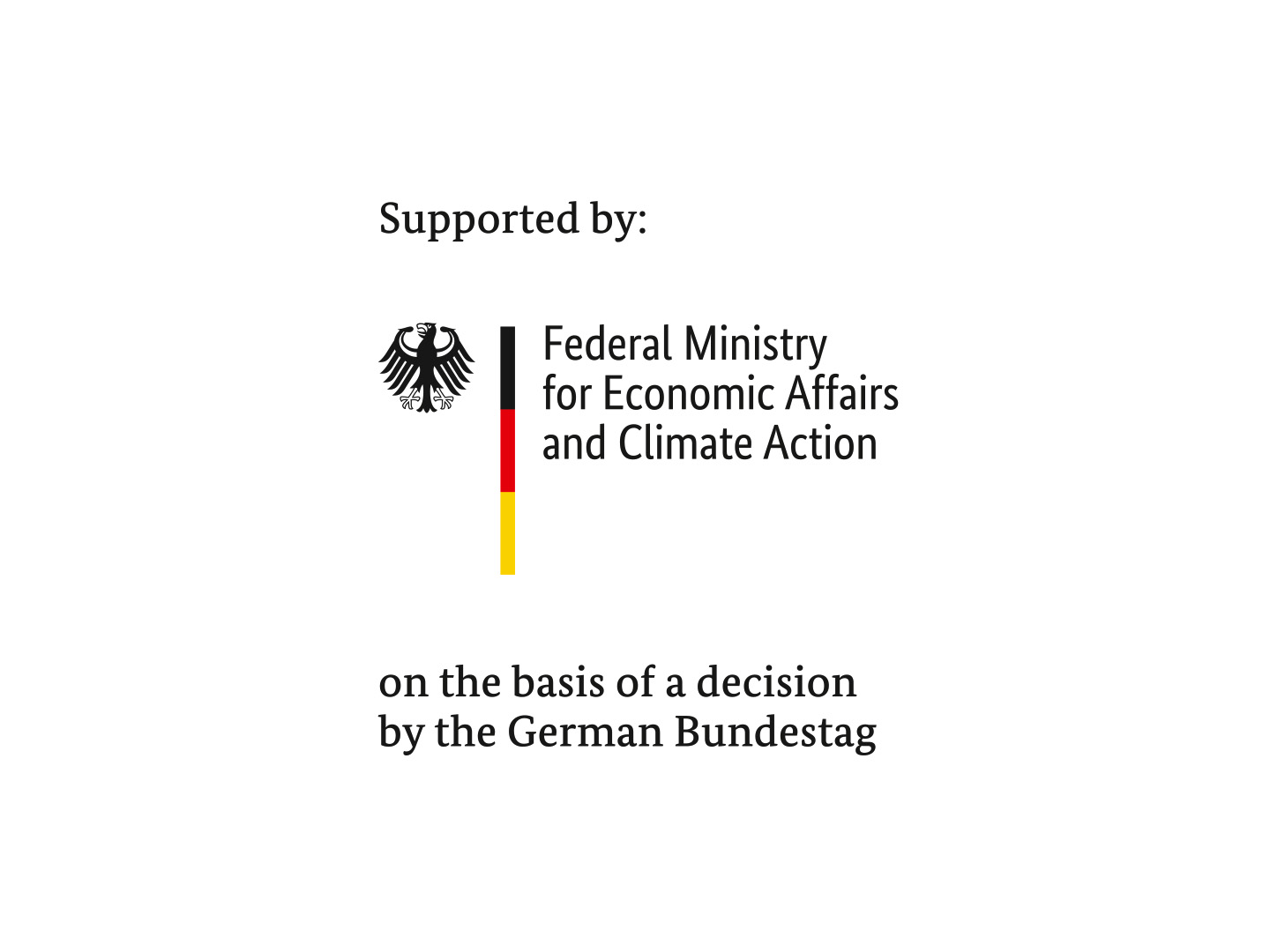Project aims
The aim of the project is the direct production of alcohols from CO2 – by means of electrochemical reduction. This electrolysis is to be operated under technical-economic conditions.
The aim of the project is the direct production of alcohols from CO2 – by means of electrochemical reduction. This electrolysis is to be operated under technical-economic conditions.
The production of value-added chemicals requires the utilization of base chemicals such as alcohols. Actually, alcohols are synthesized by using large quantities of fossil raw materials such as crude oil. Direct electrochemical CO2 reduction to alcohols using renewable energy is a promising alternative that can reduce emissions of climate-changing CO2 and produce important basic chemicals in a sustainable way.
Use CO2 as raw material
Such power-to-x processes are particularly interesting for the production of C1 to C4 alcohols, because they are of great importance for various processes. Take methanol, for example. Besides its role as an energy source, C1 alcohol is one of the most important basic chemicals and is largely processed into formaldehyde, acetic acid, methyl tert-butyl ether, methyl methacrylate, methyl chloride and methyl amines. The C2 to C4 alcohols ethanol, propanol and butanol can be further processed to alkenes and dienes. Ethanol and propanol can thus be converted into ethene and propene – the starting materials for the plastics polyethylene and polypropylene. Butanol can be used to produce butadiene – the starting material for synthetic rubber.
Saving energy, reducing costs
Existing concepts for the material use of carbon dioxide provide for a two-stage process. It starts with an electrolysis process in which hydrogen is produced with the help of regenerative electricity. This is followed by a thermochemical process in which the hydrogen is converted with CO2 to the desired end product. There are two disadvantages: Firstly, energy losses occur in the first step, and secondly the hydrogen has to be stored temporarily. In a single-stage process, these disadvantages are eliminated and an energy saving potential of up to 20 percent can be expected.
The work at Fraunhofer UMSICHT focuses on the development of a high-pressure process for electrochemical alcohol synthesis. For this purpose, a high-pressure reactor was successfully realized on a laboratory scale including reproducible sampling and product analysis. Parallel to this, first promising copper-based electrodes for the electrochemical alcohol synthesis were identified in the course of a screening, which are currently being investigated in more detail under high pressure conditions. An intensive cooperation with the project partners regarding the topics electrode development, phase equilibria and process integration is taking place.

Duration: August 2019 to January 2023
Funding code: 03ET1642C
Website: Federal Ministry for Economic Affairs and Climate Action